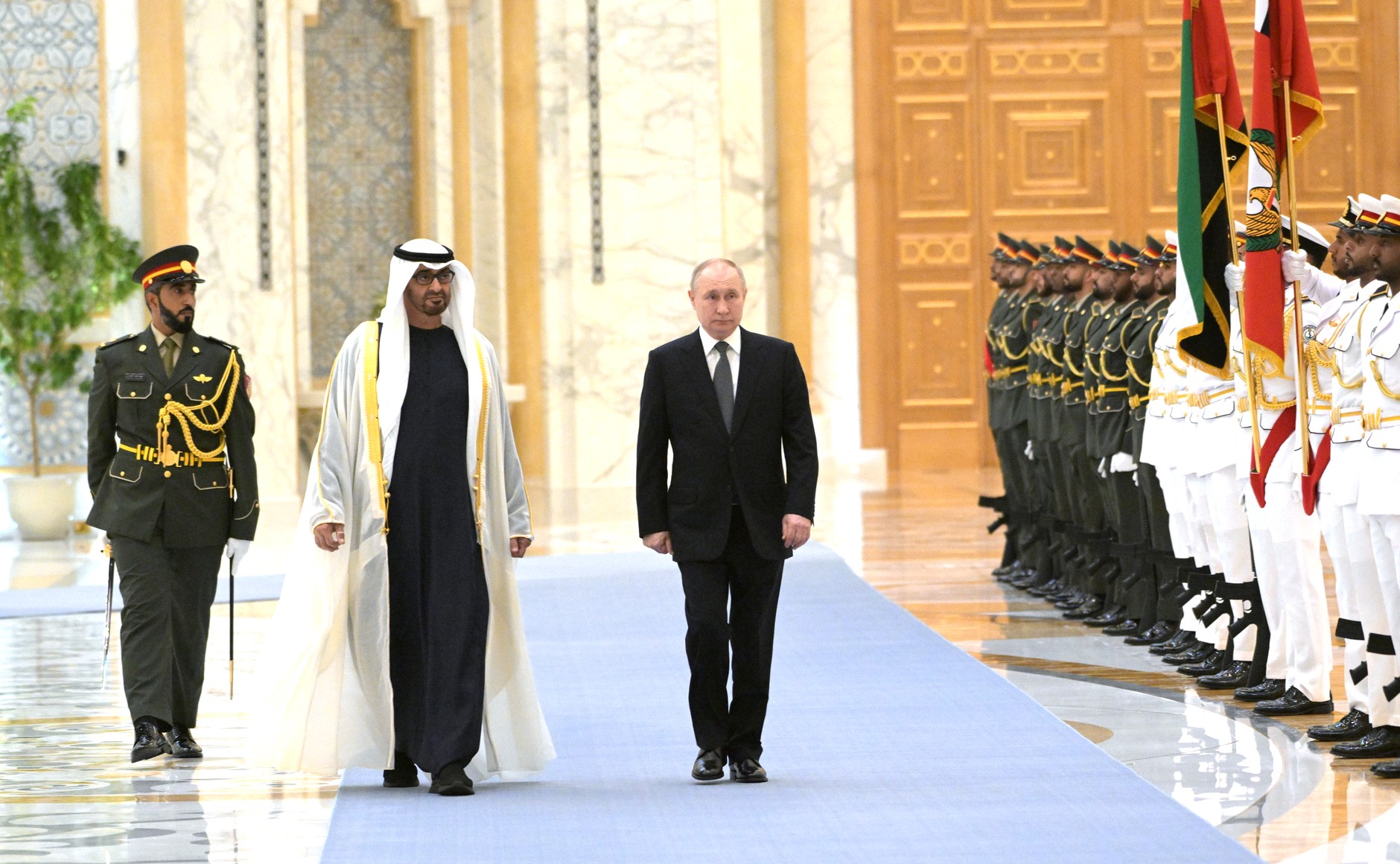Intense diplomatic efforts are underway involving the United States, Egypt and Qatar to secure a ceasefire in Gaza, and avoid growing tensions between Israel and Hezbollah escalating into outright conflict, with the risk that this might trigger a wider regional war, drawing in Iran.
Yet one external player is absent from this regional diplomacy – Russia.
At one level, this is surprising.
For decades, Russia has positioned, and portrayed, itself as a key player in Middle East affairs. It has longstanding close ties with secular Arab states, notably Syria, Iraq, Egypt and Algeria, dating back to Soviet times. As a UN Security Council permanent member, Moscow was part of the Quartet efforts to negotiate an Israel-Palestine solution. Significant migration of Jews from Russia and Eastern Europe to Israel since 1991 has also fostered Moscow’s relations with Israel.
But in the present conflict, Russia cynically sees the tension roiling the region as serving its interests.
Broadly, Moscow wants to enhance its political standing and influence as a great power, while minimising potential risks to Russian domestic security coming from the region – especially, Islamist extremism and terrorism. Russia also wants to protect its security position and assets in its ally Syria.
As a corollary of this, Moscow aims to erode US influence and damage US prestige in the region – part of its wider ambition to undermine US power and the US-led global order. Russia has heaped fuel on the fire by blaming the United States for the Gaza conflict, claiming its longtime support for Israel has stalled efforts to resolve the Palestinian issue for decades, while failing to restrain Israel in the Palestinian Occupied Territories.
For Middle East states, in turn, eager to balance and diversify their relations with the West, Russia provides a counterweight, as well as useful political cover, economic opportunities and military hardware.
Moscow, which hitherto pursued an avowedly balanced approach to the Israel-Palestine issue, has now come down more firmly on the Palestinian side, positioning itself alongside Arab governments and popular sentiment.
It’s significant too that the Gaza conflict has, conveniently for Moscow, distracted United States, and wider global attention and resources, away from Russia’s invasion of Ukraine. The ripple effects from the Gaza conflict, including Houthi attacks on Red Sea shipping, have also increased economic uncertainty and costs in Western economies, leading to volatile oil prices and jittery supply chains.
But while Moscow may not be engaged in the current flurry of crisis diplomacy, that doesn't mean Russia is inactive in the region.
Far from it.
Moscow has important economic interests to protect in the Middle East – whether as a major energy exporter, arms supplier or nuclear energy partner. Russia is focused squarely on enhancing its standing and influence in the region by developing stronger political and economic ties with key regional states, such as Iran, Türkiye, Egypt, Saudi Arabia and the United Arab Emirates – with some success.

Moscow presents itself as a reliable, pragmatic and even-handed player, in contrast to the purportedly fickle and conditional support offered by the United States and other Western powers.
For Middle East states, in turn, eager to balance and diversify their relations with the West, Russia provides a counterweight, as well as useful political cover, economic opportunities and military hardware.
Moscow has sought to draw these states into the still-evolving institutional structures – the BRICS and the Shanghai Cooperation Organisation (SCO) – that Russia (and China) have been promoting to offset the US-led international order. Iran, Egypt, Saudi Arabia and UAE have this year all joined the BRICS, and along with Türkiye they are also members or observers of the SCO.
Although Russia’s relationship with Iran has historically been uneasy and wary, shared international isolation has created a mutual interest bringing them closer together. Iranian drones and missiles have proved crucial for Russia in waging its war in Ukraine, while Tehran is keen to acquire advanced weaponry (especially Su-35 fighter planes and MI28 attack helicopters) from Russia to modernise its antiquated armed forces. Russia also sees Iran as offering a useful future trade corridor through to the Indian Ocean.
Moscow sees events currently going its way in the region.
The relationship between Russia and Türkiye is a complex blend of cooperation and competition. Economic ties are substantial and important: Russian energy and tourist revenue are vital for Türkiye’s enfeebled economy, while sanction-hobbled Russia values Türkiye as an access point to and from the wider world for people and goods alike. Moscow and Ankara compete for influence in the region, notably in the South Caucasus and Syria, but they have succeeded in managing adroitly their competition, to mutual advantage.
Russia has in recent years developed closer links with Saudi Arabia, centred on their cooperative efforts within the OPEC Plus group to manage the global energy market, to their advantage. Likewise with the UAE, which has also become an important economic conduit for sanction-afflicted Russia.
Meanwhile, Russia‘s historically-strong relations with Egypt, a leading Arab state and founding member of the Non-Aligned Movement, have been boosted in recent years. These are intertwined with extensive economic links, notably arms purchases, nuclear energy production, and substantial sales of Russian oil and grain.
Moscow, then, sees events currently going its way in the region – provided full scale war doesn't break out, which would inevitably draw in Syria and Iran. While Washington is preoccupied with diplomatic efforts to calm tensions, Russia is content to fan the flames of anti-US sentiment, while positioning itself as a valued political, economic and security partner for Middle Eastern states.

